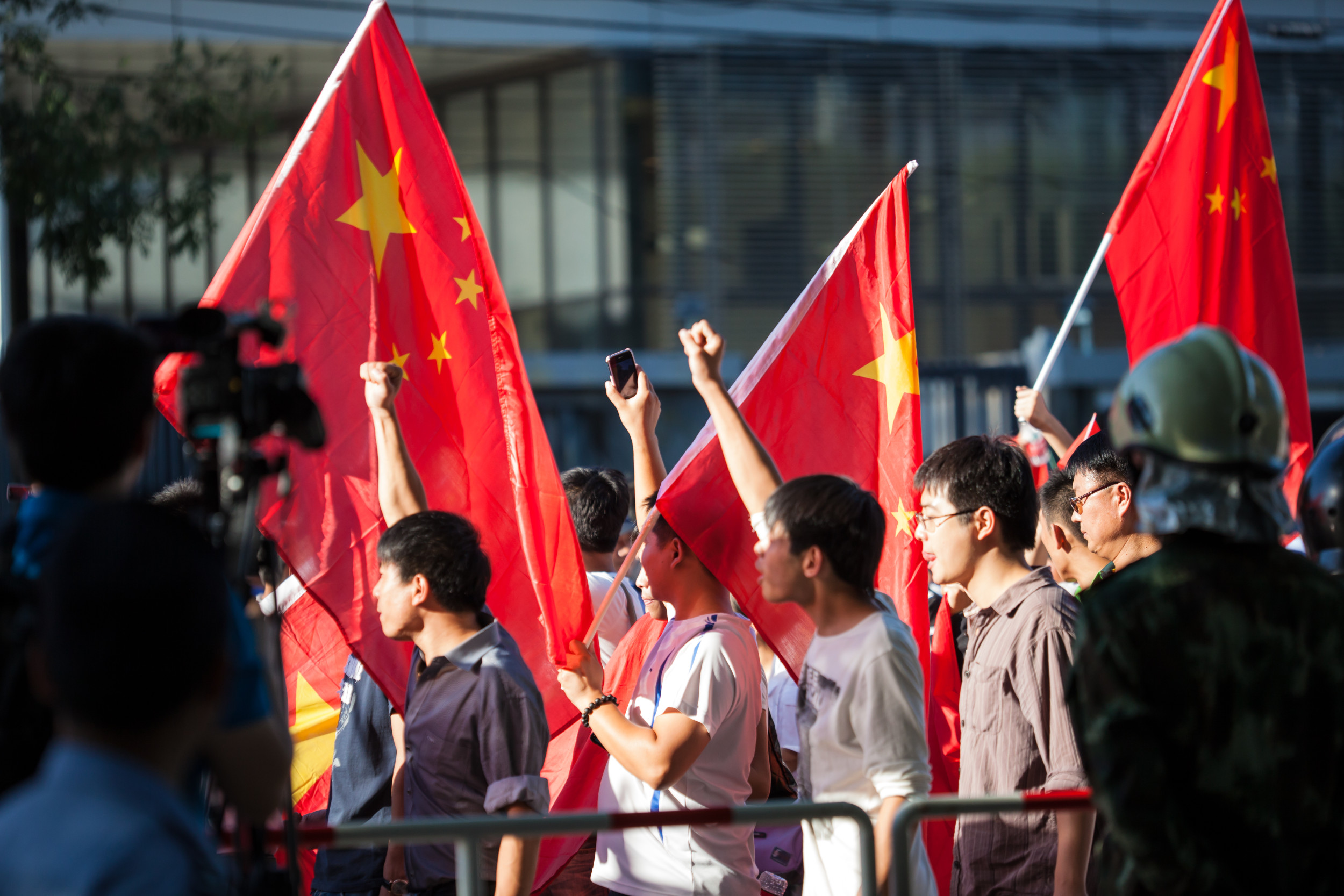The recent stabbing of an elementary student in Shenzhen has again raised concerns over anti-Japanese sentiment in China.
On September 18, a 10-year-old boy was attacked by a 44-year-old man, identified as Zhong, near the Shenzhen Japanese School where he was enrolled. The child died the next day.
The incident marked the second knife attack on Japanese nationals in under three months.
In June, a Japanese woman and her child were hospitalized with non-life-threatening injuries after a knife-wielding assailant attacked them. A Chinese woman was stabbed while trying to protect the pair and later succumbed to her injuries.
Getty Images
Analysts and Japanese commentators have pointed their fingers at the Chinese government, saying Beijing’s frequent focus on historical and modern-day grievances against Japan has fueled such hatred.
Ou Si-fu, an associate research fellow and director at Taiwan’s Institute for National Defense and Security Research, told Newsweek the September 18 attack demonstrated that underlying resentment toward Japan can boil over at any time.
Toshimitsu Shigemura, a professor of international relations at Tokyo’s Waseda University, told the South China Morning Post newspaper that, under China’s President Xi Jinping, education has become more “aggressively anti-Japanese” than under previous Chinese leaders.
“Xi is using criticism of Japan to bolster his own support at a time when the Chinese economy is struggling, with the policy of ‘love the nation’ designed to safeguard his power,” Shigemura added.
One of the more prominent nationalist displays came from a middle school in Shandong Province, where students reenacted the 2022 assassination of former Japanese Prime Minister Shinzo Abe.
He had been a controversial figure in China due to his efforts to strengthen Japan’s military in response to China’s growing regional influence. His visit to Tokyo’s Yasukuni Shrine, which commemorates more than 2.5 million fallen soldiers, including over 1,000 convicted war criminals, angered many in China.
On Chinese social-media platforms such as Bilibili, some users questioned why the boy’s murder was getting so much attention. “I don’t understand why Japanese injuries are causing such a big response online in China,” one user commented.
Another user warned: “If Japan blindly escalates the situation, it will only lead to more tragedy.”
They said resentment toward Japan is not the product of education but of unaddressed grievances such as Japan’s wartime atrocities in the 1930s and 1940s; the enshrinement of war criminals at Yasukuni Shrine; and the dumping of treated radioactive wastewater from the Fukushima Daiichi nuclear plant, which suffered a meltdown after the 2011 Tohoku earthquake and tsunami.
Last year, China stepped up its propaganda campaign over Fukushima, banning Japanese seafood and accusing Tokyo of irresponsibly threatening the environment, despite the International Atomic Energy Agency’s report the treated water is “consistent with international safety standards.”
INSDR’s Ou said the controversy underscores how Beijing controls nationalist narratives to counter long-standing fears of Japanese aggression.
The murder has also touched off a diplomatic incident. Japanese Prime Minister Fumio Kishida labeled the killing “despicable” and demanded that China provide a full explanation.
In a discussion with Japan’s top diplomat, Yoko Kamikawa, in New York on Monday, Chinese Foreign Minister Wang Yi said China would handle the investigation according to the law but advised Japan to avoid politicizing the incident.
Chinese Foreign Ministry spokesperson Lin Jian reiterated Wang’s statement at a press conference, saying that the murder was an isolated incident unrelated to anti-Japanese sentiment.
“Some in Japan are linking this case with so-called anti-Japan comments on Chinese social media, exaggerating and sensationalizing ‘safety risks.’ This rhetoric does not match the facts,” Lin said, though he stated that the investigation was ongoing.
He added that China remains committed to ensuring the safety of foreign nationals and urged Japan not to “politicize or inflate” the incident.
Masashi Mizobuchi, Japanese foreign ministry assistant press secretary, said the suspect in last week’s stabbing is in custody and that the details of the incident are still under investigation.
“It’s crucial to clarify the motive to prevent similar incidents,” Mizobuchi told Newsweek. “We call on China to provide a clear explanation as soon as possible.”
Tokyo University of Foreign Studies professor Yoshiyuki Ogasawara told Newsweek that while the incident may have been isolated, Beijing’s propaganda could have contributed to the attack.
“It may have been an isolated…incident, but the Chinese Communist Party’s long-standing and deliberate attempt to spread ill-will toward Japan and emphasize Chinese nationalism may have shaped the environment in which the incident occurred,” he said.
The Chinese embassy in Japan did not respond to a request from Newsweek for comment.
A 2023 opinion poll conducted by Japanese think tank Genron NPO found that a majority in both countries harbored negative views of each other.
Among Japanese respondents, 92.2 percent had an unfavorable opinion of China, up from 87.3 percent in 2022. On the Chinese side, 62.9 percent viewed Japan negatively, about the same as the previous year.
The most common reason cited by Japanese respondents was anti-Japanese reporting in Chinese media, selected by 40.7 percent, a significant increase from 21.9 percent in 2022.
Among Chinese respondents, 37.3 percent pointed to Japan’s reluctance to support Beijing’s “One China” principle concerning Taiwan. The second most common reason, cited by 27.6 percent, was Japan’s alignment with U.S.
Update 9/29/24, 5:08 a.m. ET: This article has been updated with a comment from Ou Si-fu and extra context.


